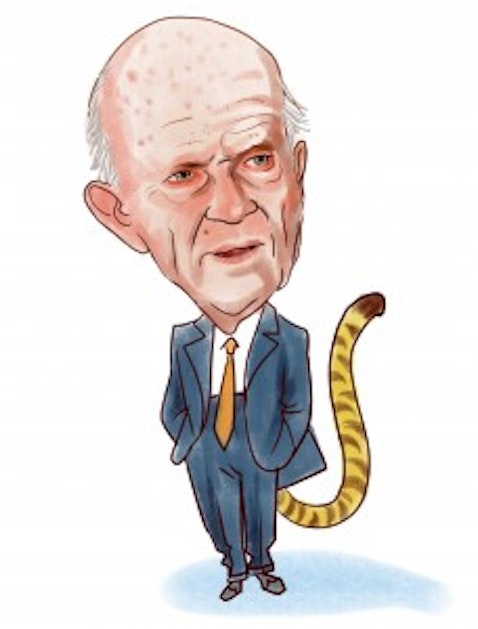
Bill Hwang was once a star at Tiger Management, the gilded hedge fund empire run by the billionaire investor Julian Robertson. In 1995, as an ambitious young stock salesman, Mr. Hwang won Tiger’s annual award given to the person outside of the fund who had made the greatest contribution to its success. Tiger soon hired Mr. Hwang, and after he earned millions of dollars for himself and the fund trading in Asian markets, Mr. Robertson gave him the money to start Tiger Asia, which at its peak managed more than $5 billion.
Investors and hedge fund managers must come to a common understanding about what is possible (Opalesque)
According to Dr. Sassan Zaker, head of Alternative Investments at the CHF2bn Julius Baer Pension Fund, the key to investing is simplification. This summer at the GAIM conference, Zaker reportedly called for fundamental changes to the way institutional investors approach hedge fund manager selection and suggested pooling with other pension funds to create a fund of hedge funds. A lot of people are looking for new ways of defining risk and returns for various asset classes and hedge funds nowadays, he said during Terrapinn’s Hedge Funds World conference in Zurich last month.
Some hedge funds dump their bets against France (III)
Some hedge funds are calling it quits on one of their biggest trades of the year – shorting French government bonds. Earlier this year many in London’s hedge fund industry were lining up bets against the euro zone’s second-largest economy, reckoning the May election of President Francois Hollande, a socialist, would accelerate the country’s deteriorating economic outlook. But the trade has not worked out as planned. France’s long-term borrowing costs fell to a record low at auction last week as investors sought out safe havens. So some funds are now cutting their losses or changing tactics, for instance betting against French equities instead.
Asset Allocation 101 (ResourceInvestor)
There is no single answer to asset allocation, and it is every man for himself. One thing that I can tell you with certainty is how a hedge fund approaches the issue. The biggest hedge funds run thousands of positions across countries, industries, sectors, and currencies that are dynamically hedged on a real time basis. To monitor this they need a global 24-hour multilingual trading desk backed by the latest mainframe computers using custom designed, cutting edge software. They have gobs of bandwidth too, as a nanosecond can make the difference between winning and losing on a trade. You can put together something like this for, oh, maybe $100 million, give or take a few dozen million. It’s all enough to send an MIT math PhD’s head spinning.
Fraudster to hedgies: ‘Sorry’ (NYPost)
He’s sorry all right. Sam Israel, the hedge-fund manager convicted of running a $450 million Ponzi scheme who faked his own suicide to avoid the slammer, apologized for dragging the industry through the mud. “I am deeply ashamed to have disgraced you all by proxy,” Israel told roughly 150 members of the New York Hedge Fund Roundtable in a letter last week. “I am sorry to have tarnished the business I loved and lived for my entire life.”
Swiss Fund Moves, Swaps Rule Testimony, GDF (BusinessWeek)
Swiss hedge fund managers are considering relocating to neighboring Liechtenstein to sidestep tougher regulations being introduced in Switzerland and gain access to the European Union, PricewaterhouseCoopers LLP said. About 47 percent of 92 firms surveyed, including managers of hedge funds, private equity and real estate, would pick EU member Liechtenstein over being supervised by the Bern-based Swiss Financial Market Supervisory Authority, PwC said. The move would allow them earlier access to EU markets under a new regulatory regime for alternative investment managers.





